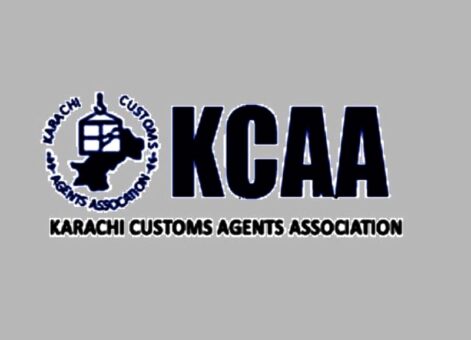KARACHI: The payment duty and taxes amounting above Rs1 million has been made mandatory through the electronic mode from January 20, 2021, said Wajid Ali, Director General, Reforms and Automation, Federal Board of Revenue (FBR).
At a meeting with members of the Federation of Pakistan Chambers of Commerce and Industry (FPCCI), Wajid Ali said that the online system was introduced through a procedure in 2017 in collaboration with the State Bank of Pakistan (SBP), a statement said on Thursday.
This system is connected with the WeBOC and payment of taxes can be made by pay orders and cash to create a balance.
Such procedures are already adopted by a number of countries worldwide. The system is operated by a unique ID which is called a PSID number issued to the relevant users who are connected to approximately 16000 different branches of the relevant bank across Pakistan.
In order to further ease the payment of taxes, the system is also supported by easy paisa / OTC on a mobile phone to the users as well and the facility through this system is available with the taxpayers on the basis of 24/7.
No drastic adoption of the system was observed last year by the users and in order to enforce the online payment by the system, it is now automated in such a way that the payment of taxes beyond Rs. 1 million cannot be made through the old system of payment of taxes.
“It is, therefore, mandatory to the taxpayers that they are bound to get PSID number if the amount of taxes to be paid accedes Rs. 1 million or above,” he added.
The last date to adopt the new system by the taxpayers is January 20, 2021, as announced by the FBR so that the payment of taxes may be made more effective and transparent.
This will also ease to compile the statistical data relating to revenue collection within no time. At present now 22 percent of the collection of taxes is being carried out with the help of a new electronic system and it is not out of place to mention that positive feedback is coming in from the taxpayers who are already using the facility.
Mian Nasser Hyatt Maggo President, FPCCI appreciated Pakistan Revenue Automation Private Limited (PRAL) for improving ease of doing business and facilitating the business industry while presiding the meeting of FPCCI Standing Committee on Customs headed by Shabbir Hassan Mansha.
He further said when it comes to business endeavors every business person has to deal with Customs, FBR, and SBP.
Most people are confused by the complexity of processes. The meeting expects the experts to disentangle the process complications.
A team of experts from Pakistan Customs and Pakistan Revenue Automation Private Limited (PRAL) joined FPCCI Head Office, Karachi the in the meeting of FPCCI Standing Committee on Customs, for a presentation with FPCCI member trade bodies across Pakistan simultaneously at FPCCI Head Office Karachi (Chair), Capital Office Islamabad and Regional Offices at Lahore, Peshawar & Quetta via Zoom Link to deliver the presentation.
The team members include Mr. Wajid Ali, Director General, Reforms & Automation, FBR; Sanaullah Abro, Director Reforms & Automation, and Arshad Hussain, Sr. Manager, PRAL, Customs House, Karachi along with representative of State Bank of Pakistan (SBP).
The presentation was attended by the trade bodies from all over Pakistan on Zoom.
In the meantime, the trade bodies were also briefed by the other team members including representatives from the State Bank as to how to adopt the new system with minimum hurdles.
During the question-answer session, the representatives of trade bodies from all over Pakistan were invited to share their views and queries in this respect. In general, the trade bodies have shown their interest and shown their willingness to register themselves within the newly adopted system of payment of taxes.
The views were also shared by the representatives of trade bodies via Zoom Link from all FPCCI Stations who were present on Zoom.
Shabbir Hassan Mansha, Convener, FPCCI Central Standing Committee on Customs informed that his committee will organize more sessions relevant to Customs, and SBP to enhance the knowledge and relevant information on the subject.
Khurram Ijaz former vice president FPCCI while presenting the vote of thanks to the participants and the experts’ said that a close liaison between the FBR and SBP and trade bodies should be maintained by appointing a focal person from FBR and SBP respectively for the ease of trade.



